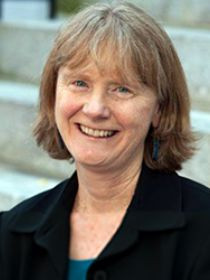Connect with Margaret
About Margaret
Weir’s work examines the politics of poverty and social policy in the United States, particularly at the state and local levels. Her current project addresses the contemporary politics of spatial inequalities in the American metropolis, showing how poverty’s shifting location is creating new suburban forms of isolation. Drawing on evidence from Atlanta, Chicago, and Phoenix, Weir analyzes strategies for adjusting existing policies and building political alliances to fit the new, more variegated social geography of need. Weir serves on the Social Science Advisory Board of the Poverty and Race Research Action Council.
Contributions
How Powerful Consumer Advocates Help ObamaCare Succeed in California
The Rising Challenge of Poverty in the Suburbs
In the News
Publications
Metropolitan Opportunity Series
, Brookings Institution, June 30, 2011.Examines philanthropic investment in the metropolitan areas of Chicago, Detroit, Atlanta, and Denver, showing that despite rising suburban poverty, major philanthropic organizations provide few grants in such areas.
